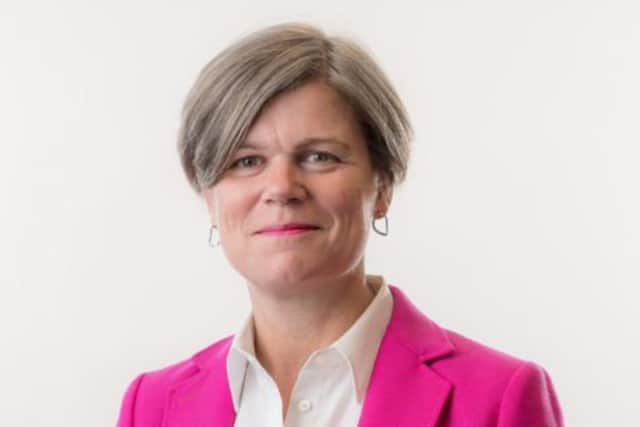Yorkshire Water boss refuses bonus amid public anger over sewage spills
Nicola Shaw said she understands “the strength of feeling” and will be refusing her first bonus, since taking charge of the company in May last year.
She could have received between £600,000 and £800,000 if the company met its performance targets for the year.
Advertisement
Hide AdAdvertisement
Hide AdThames Water Chief Executive Sarah Bentley and South West Water Chief Executive Susan Davy have also declined to accept bonuses this year.


England's 10 water companies recorded a significant drop in sewage spills last year, but the Environment Agency said it was “largely down to dry weather, not water company action”.
Ms Shaw said: “I understand the strength of feeling about the issues linked to river health which is why I’ve decided that this year I won’t be accepting a bonus.
“This is the right thing to do, and I’m committed to improving Yorkshire Water’s performance. Our turn-around plan is already underway.”
Advertisement
Hide AdAdvertisement
Hide AdHer predecessor, Liz Barber, received £923,000 in bonus payments last year, according to the company’s annual report.
Figures released by the Environment Agency show the number of sewage discharges recorded by Yorkshire Water dropped by 22 per cent, from 70,062 to 54,273, between 2021 and 2022.
The amount of time sewage was allowed to spill into Yorkshire’s waterways fell by 43 per cent, from 406,131 hours to 232,054 hours.
Ms Shaw said she was pleased with the reduction but last year’s drought had a significant impact as there is less pressure on the sewage system during spells of dry weather.
Advertisement
Hide AdAdvertisement
Hide AdYorkshire Water has pledged to invest £180m in reducing storm overflows by 2025. It is also installing a new sewer that will significantly reduce the frequency and volume of discharges into the River Wharfe in Ilkley, when it opens in January.
That stretch of river was granted bathing status in 2021, but the Environment Agency has said swimming is “not advised”, as it contains effluent from storm overflows and runoff from livestock farms.
Last year, the agency also stated Yorkshire Water’s environmental performance requires “significant improvement”, as it recorded 74 pollution incidents in 2021 and five were serious.
According to a Government estimate, it would cost between £350bn and £600bn to eliminate sewage discharges, as water companies would need to completely separate the sewage and rainwater systems that homes and businesses across the country use.
Advertisement
Hide AdAdvertisement
Hide AdWater companies said that would lead to a significant increase in bills and widespread disruption.
But in a bid to significantly reduce discharges, the Government has launched The Storm Overflows Discharge Reduction Plan, which sets water companies strict targets and requires them to invest £56bn in upgrading their networks over 25 years.